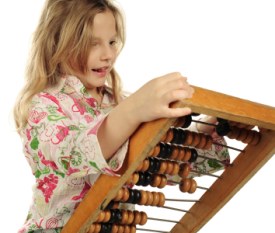
"China is a sleeping giant and the world better watch out when it awakens" - Napoleon Bonaparte
Well, the giant woke up... Nearly all of the largest companies in the world now have large-scale operations in China. And China is one of the largest markets for business travel, together with the U.S., Japan and Germany.
If you are a business traveler to China, you have seen first hand the opportunities and trends emerging out of this nation and the impact these developments could have on our and our children's future.
We talked with Lisa La Valle-Finan, MA a cross-cultural specialist who recently developed a presentation for women traveling and doing business in China. She is the Creative Director of getGlobalized ™ and tells us about...
Bringing the Kids along...

Q: What are some of the benefits of bringing your children along on your next China business trip?
getGlobalized™: While taking school age kids out of school is easier than middle or high schoolers, the benefits of traveling with your kids, anywhere, is priceless. Not vacationing, traveling. And to China? A pre-requisite to getting your kids globalized.
I think that our kids have a unique opportunity to finally see how the rest of the world lives. That all is not granite kitchen counter tops. And I say this because many of your lucky young travelers will be coming from this perspective. Most of the world lives in just a few rooms. Most of the world does not have large, separate kitchens.
We live in quite a fortunate society. And we have earned our social rights and privileges; however, it is a fine experience to see why people do, why they behave as they do, based on where they live.
Take a typical Chinese house. It is modest. We would characterize it as a very small one bedroom apartment. Western children traveling for the first time will see that their Chinese counterparts may very often sleep on the family couch that doubles as a bed at night.
School may be very far away. And schooling is extremely prized. Teachers, as are ALL elders are treated with the utmost respect. Just some of the eye-opening experiences for them to begin to observe.
I recommend that when the child is given permission to go on leave from his school, to take a travel journal with him and record a page or two of drawing and observations and snippets of conversation. Perhaps turn it into a school report upon return. The value in traveling is going to be immeasurably beneficial, particularly in the long run. After the whole trip has long since concluded, there will be some interesting afterthoughts!
About Chinese Business Etiquette
Q: When dealing with the locals, whether in a business or social setting, what are some of the manners, gestures, appreciated by the Chinese, what is to be avoided?
getGlobalized™: Yes, the age old question, whether to kiss bow or shake hands is still a problem, but here are some insights.
Gestures:
- Be conscious about physical gestures and do not use dramatic movements or facial expressions, as these can be considered rude or unsophisticated. It can engender surprise, laughter and sometimes anger.
- If beckoning to someone with a hand gesture, visitors should very subtly raise your hand just slightly. It is very insulting to call someone with the forefinger.
- It is impolite to put one's hands or fingers in one's mouth.
- Thanking someone for serving you at the table, or requesting some more tea or drink, is typically done by softly tapping and bending the first two fingers on the table (this is especially true in southern China).
- Saying Hello The American group "wave" is NOT appreciated. When departing, it is important to say farewell with a quick bow to every individual present.
- The banquet host typically will announce when the banquet has come to an end, and that is your sign that the evening has ended. Do not hang around chatting much longer, as it is expected that you leave.
Protocols in Public:
- Pushing, not lining up, as well as spitting are not uncommon
- Chinese people normally blow their nose using their hands
Silence
- When confronted with a silence, for whatever reason, the best response is also to remain silent.
- Yes more often means "I hear what you are saying, keep talking". It is NOT "I agree
It is important for visitors to consciously control emotive impulses, for positive or negative communication. The Chinese can be quiet and sedate, but if they feel offended, or that they are being used, the can very loudly censure you, and can become very emotive. Visitors should not act the same in kind.
Humility and diminishing oneself and one's achievements brings honor and face; therefore, expect compliments to be dismissed, and always deflect flattery. Nevertheless, compliments and praise are always appreciated, especially when speaking about children.
Q: What are some of the stereotypes about Chinese that Americans/Westerners make? What are some of the stereotypes about Americans that Chinese make?
getGlobalized™:
We think Chinese are:
- Shame centered
- Sovereignty, stability, prosperity
- We-centered
- Respectful
- Solemn
- Non-gestural
- Diplomatic
- Rarely Shake Hands, Bow
And to the Chinese we are:
- Guilt centered
- Life, liberty and pursuit of happiness
- Me-centered
- Assertive
- Gregarious
- Gestural
- Enthusiastic
- Shake Hands
About Developing our Children's Multicultural Attitudes
Q: How can we help children develop their own multi-cultural attitudes and why is this important?
getGlobalized™: Get them to learn a language and learn it early. If not 2-3 foreign languages like their global counterparts.
Dont forget, most people have their language, plus English. Plus whatever their own native dialect and are usually able to understand or get by in a nearby language.
So a typical Chinese child can understand Mandarin, Cantonese, English, and his own dialect. He might even have had some exposure to French or German. And his English is certainly British English.
About PoppedCulture! China ™
Q: What is PoppedCulture! ™ China, how can it enhance anyone's business trip to China?
getGlobalized™: Now, more than ever, professionals need to learn fast about other cultures. Whether going to, or receiving new-hires from another country, namely India or China. Most don't have time to fumble with guide books, or spend time researching the Internet about their business trip.
As an Intercultural (IC) specialist, I have developed uniquely crafted cross-cultural briefings called PoppedCulture!™ that gets you "there" before the plane lands, so you are ready to relate to your cultural destination, practically like a local.
Unlike the vanilla country briefs out there, Popped Culture!™ creates a " world is your oyster" excitement and inspiration for you about your destination -- in ways you can honestly relate to, and care about, with just the things you want to know like food, film, books, music, festivities, etiquette, and -- most importantly -- "what makes people tick".
Just the good stuff.
Lisa, we want to thank you for taking the time to answer our questions and providing such great insight on Multicultural Attitudes and Chinese Business Etiquette for all of us. We wish you much success in your endeavors and look forward to future editions of PoppedCulture!™
Lisa La Valle-Finan is a writer and Creative Director of getGlobalized. She has been traveling and writing for 25 years,
speaks French, Italian and Greek. You can contact her for more information on PoppedCulture! China ™, she welcomes your
comments and can be reached through her website at www.globalistagal.com





















Got a tip?
Got something to share? Let us know!